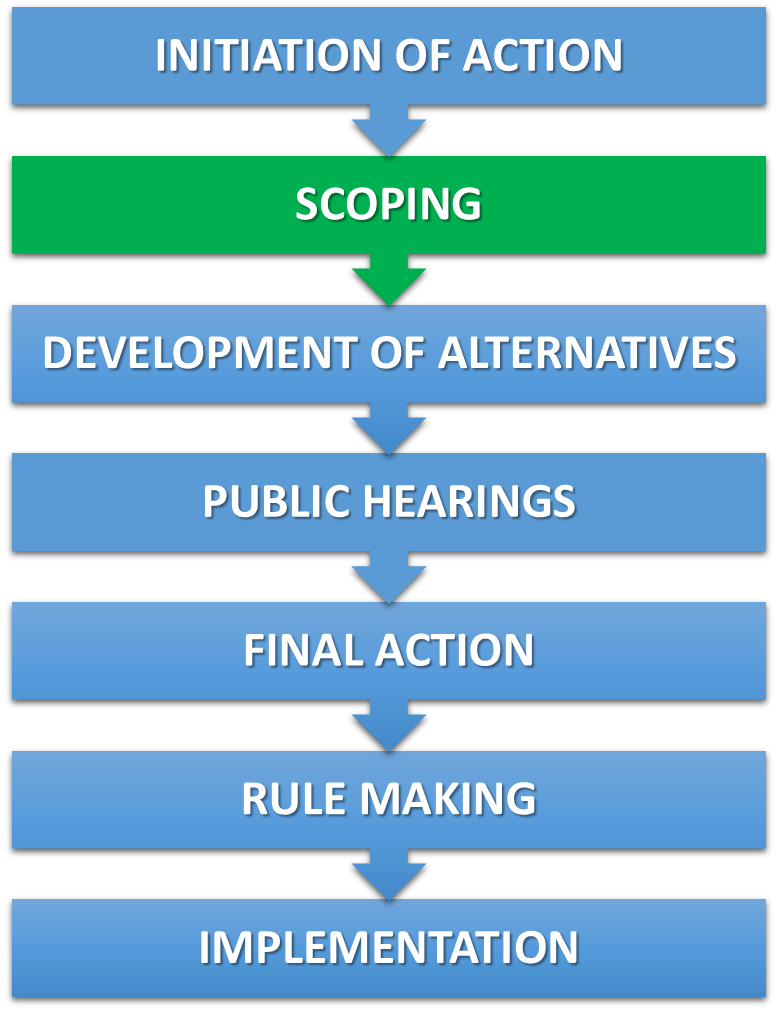An Amendment to the Fishery Management Plans for Summer Flounder, Scup, Black Sea Bass, and Bluefish
Overview
The Mid-Atlantic Fishery Management Council (Council) and Atlantic States Marine Fisheries Commission (Commission) Policy Board are developing an amendment to consider modifications to the recreational management program for summer flounder, scup, black sea bass, and bluefish. Specifically, the amendment may consider options for managing for-hire recreational fisheries separately from other recreational fishing modes (referred to as sector separation), as well as options related to recreational data collection and reporting. Click on the topics below to learn more.
-
The Council and Commission will consider whether recreational sector separation could help tailor management to the varying preferences, data availability, and economic considerations of each component of the recreational fishery. Currently, the private and for-hire recreational sectors are managed as a single unit and are held to a single, combined recreational harvest target. Management measures are typically developed and adjusted for the recreational fishery as a whole.
However, the two sectors have different motivations, preferences, fishing behaviors, operational needs, and data reporting requirements. Some recreational fishery participants have expressed an interest in recreational sector separation, which would entail managing the for-hire and private sectors of the recreational fishery separately. This could potentially allow managers to better tailor management to the needs and preferences of each sector while allowing for improved utilization of data reported by the for-hire sector. However, sector separation would also introduce complexity to the management process, and some stakeholders have raised concerns that it could create regulation imbalances and conflicts within the recreational fishing community. Sector separation may also require use of data that is more uncertain when broken down by sector. Through this amendment, the Council and Commission intend to explore whether recreational sector separation is appropriate for these fisheries.
-
The Council and Commission will also consider approaches to improve or supplement the collection and use of the recreational data that support management decisions for these species. Summer flounder, scup, black sea bass, and bluefish are popular recreationally-targeted species, with millions of directed trips taken per year. Recreational catch in these fisheries is inherently difficult to estimate for a number of reasons, including the open-access nature of participation in these fisheries, high numbers of trips taken, widely varying angler behavior, and lack of reporting requirements for private anglers. Recreational catch for these species is estimated via the Marine Recreational Information Program (MRIP), using sampling protocols and statistical expansion methods which can result in variable and uncertain estimates. This is especially true when data are broken down into finer spatial and temporal scales. Angler confidence in the accuracy of recreational estimates has been a longstanding problem. Therefore, the Council and Commission have previously recognized the need to explore alternative approaches and additional data streams that could help improve recreational data.
Scoping
The Council and Commission held five scoping hearings for this amendment between February 25 and March 5, 2025. The written comment period closed on March 20, 2025. The Council and Commission will review scoping comments and discuss next steps at the April 2025 Council Meeting.
- Scoping Announcement
- Public Information/Scoping Document
- Scoping Presentation Slides
Amendment Development Timeline
October 2020 Council/Policy Board Meeting: This amendment was initiated along with several other Recreational Reform Initiative Topics.
Early 2021 – Mid 2024: Work on this amendment was put on hold to prioritize development of other actions.
December 2024 Council/Policy Board Meeting: The Council and Policy Board approved a draft scoping/public information document, with minor modifications, for public comment in early 2025.
January-March 2025: The Council and Board conducted scoping hearings and collected written scoping comments on this action.
Next Steps: The Council and Policy Board will review scoping comments and discuss next steps at the April 2025 Council Meeting.
Contacts
Kiley Dancy, Mid-Atlantic Fishery Management Council, kdancy@mafmc.org, 302-526-5257
Hannah Hart, Mid-Atlantic Fishery Management Council, hhart@mafmc.org, 302-526-5263
Tracey Bauer, Atlantic States Marine Fisheries Commission, tbauer@asmfc.org
Chelsea Tuohy, Atlantic States Marine Fisheries Commission, ctuohy@asmfc.org


